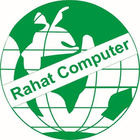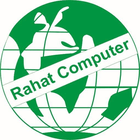Comparing Desktop And Cloud-Based Storage Options

In the age of digital information, the question of where and how to store data is a crucial one. With the rise of cloud-based storage options, the traditional desktop storage solutions have faced stiff competition. In this article, we will explore the differences between desktop and cloud-based storage options, and compare their advantages and disadvantages. Whether you’re a tech-savvy professional or a casual user, understanding these options is essential for making informed choices about your data storage needs. Let’s delve into the world of data storage and find out which option might be the best fit for you.
Related: Buy Best Desktops in Oman
Desktop Storage: A Comprehensive Analysis of Features, Security, and Accessibility
In today’s digital age, the need for efficient data storage solutions is paramount. Whether you are a student, professional, or business owner, having a reliable storage option is essential. In this article, we will delve into the world of desktop and cloud-based storage options, comparing their features, security measures, and accessibility to help you make an informed decision.
When it comes to features, desktop storage offers a wide range of options for organizing and managing your files. With desktop storage, you have complete control over your data, allowing you to create folders and customize file names according to your preference. Additionally, you can easily access your files offline, making it ideal for individuals who work in areas with limited or no internet connectivity.
- Features of Desktop Storage:
- Customizable file organization
- Offline accessibility
- Ability to work with large files
- Features of Cloud-Based Storage:
- Automatic file synchronization across devices
- Easy file sharing and collaboration
- Remote access to files from any location
Cloud-Based Storage: Unveiling the Advantages in Scalability, Collaboration, and Disaster Recovery
Cloud-based storage has emerged as a game-changer in the world of data management, providing numerous advantages over traditional desktop storage options. One of the key benefits of cloud-based storage is its scalability. Unlike desktop storage, which often requires physical upgrades to accommodate growing files and data, cloud storage allows for easy and seamless expansion. With just a few clicks, users can increase their storage capacity to meet their evolving needs. This scalability eliminates the need for expensive hardware purchases and upgrades, making it a cost-effective solution for businesses of all sizes.
Another advantage of cloud-based storage is its ability to enhance collaboration among team members. With desktop storage, sharing files and documents can be a tedious and time-consuming process. However, cloud storage offers a simple and efficient way for individuals to collaborate on projects in real-time. Multiple users can access and edit files simultaneously, ensuring that everyone is on the same page. Additionally, cloud-based storage allows for easy file sharing with external stakeholders, such as clients or partners, further fostering collaboration and streamlining workflows.
In terms of disaster recovery, cloud-based storage offers a robust and reliable solution. Desktop storage is prone to hardware failures, accidental deletions, or natural disasters that can result in data loss. However, with cloud storage, files are automatically backed up and stored in secure data centers. This means that even if a computer crashes or a file is accidentally deleted, users can easily retrieve their data from the cloud. Cloud-based storage also provides peace of mind in the event of a disaster, as data remains safe and accessible, ensuring business continuity.
Overall, cloud-based storage outshines traditional desktop storage options in terms of scalability, collaboration, and disaster recovery. Its flexibility, ease of use, and enhanced security make it an attractive choice for individuals and businesses alike. By embracing cloud storage, users can take advantage of its numerous benefits and revolutionize the way they manage and store their data.
Delving into the Pros and Cons: Which Storage Option Suits Your Needs?
When it comes to choosing the right storage option for your needs, it’s important to weigh the pros and cons of both desktop and cloud-based solutions. Both options offer their own unique advantages and disadvantages, so it’s crucial to understand what each has to offer before making a decision.
Desktop Storage:
Desktop storage refers to storing your files locally on your computer’s hard drive or an external storage device. Here are some of the pros and cons of this option:
- Pros:– Faster access to files, as they are stored locally.
– Complete control over your data and security.
– No reliance on internet connectivity.
- Cons:– Limited storage capacity, depending on your hard drive size.
– Vulnerable to physical damage or loss.
– Difficult to collaborate and share files with others.
Cloud-Based Storage:
Cloud-based storage, on the other hand, involves storing your files on remote servers accessed via the internet. Here are some of the pros and cons of this option:
- Pros:– Unlimited storage capacity, scalable to your needs.
– Accessibility from any device with an internet connection.
- Easy collaboration and file sharing with others.
- Cons: – Dependence on internet connectivity.
– Potential privacy and security concerns.
- Slower access to files, depending on internet speed.
Expert Recommendations: Choosing the Perfect Storage Solution for Your Data
When it comes to choosing the perfect storage solution for your data, there are two main options to consider: desktop and cloud-based storage. Both options have their own advantages and drawbacks, so it’s important to understand the differences between them before making a decision.
Desktop Storage
Desktop storage refers to the traditional method of storing data on physical devices such as hard drives or external storage devices. Here are some key points to consider:
- Control: With desktop storage, you have complete control over your data. You can easily access and manage your files without relying on an internet connection.
- Security: Desktop storage offers a higher level of security as your data is stored locally. You have the option to encrypt your files and keep them offline, reducing the risk of unauthorized access.
- Storage Capacity: Desktop storage provides a wide range of storage options, allowing you to choose the capacity that suits your needs.
Cloud-Based Storage
Cloud-based storage, on the other hand, involves storing your data on remote servers accessed through the internet. Here are some key points to consider:
- Accessibility: With cloud-based storage, you can access your data from anywhere and on any device with an internet connection. This makes it convenient for remote work or collaboration.
- Scalability: Cloud-based storage offers virtually unlimited storage capacity, allowing you to scale up or down as your data needs change.
- Backup and Recovery: Cloud-based storage automatically backs up your data, reducing the risk of data loss. It also offers easy recovery options in case of accidents or system failures.
Comparison
To help you make an informed decision, here’s a comparison table highlighting the key differences between desktop and cloud-based storage:
| Factor | Desktop Storage | Cloud-Based Storage |
|---|---|---|
| Control | You have complete control over your data. | You rely on the service provider’s infrastructure. |
| Accessibility | Requires physical access to the storage device. | Can be accessed from anywhere with an internet connection. |
| Security | Higher level of security as data is stored locally. | Relies on the service provider’s security measures. |
| Scalability | Storage capacity is limited to the device’s capacity. | Offers virtually unlimited storage capacity. |
| Backup and Recovery | Requires manual backup and recovery processes. | Automatically backs up data and offers easy recovery options. |
Ultimately, the choice between desktop and cloud-based storage depends on your specific needs and preferences. Consider factors such as data security, accessibility, and scalability to determine which option is the perfect fit for your data storage requirements.
The Conclusion
In conclusion, both desktop and cloud-based storage options have their own advantages and disadvantages. Desktop storage provides greater control and security, while cloud-based storage offers convenience and accessibility. Ultimately, the best option for you will depend on your specific needs and preferences. Whether you choose to keep your files on your own hard drive or in the cloud, it’s important to weigh the pros and cons of each and make an informed decision. Whichever option you choose, remember to regularly back up your important data to ensure its safety and accessibility.



